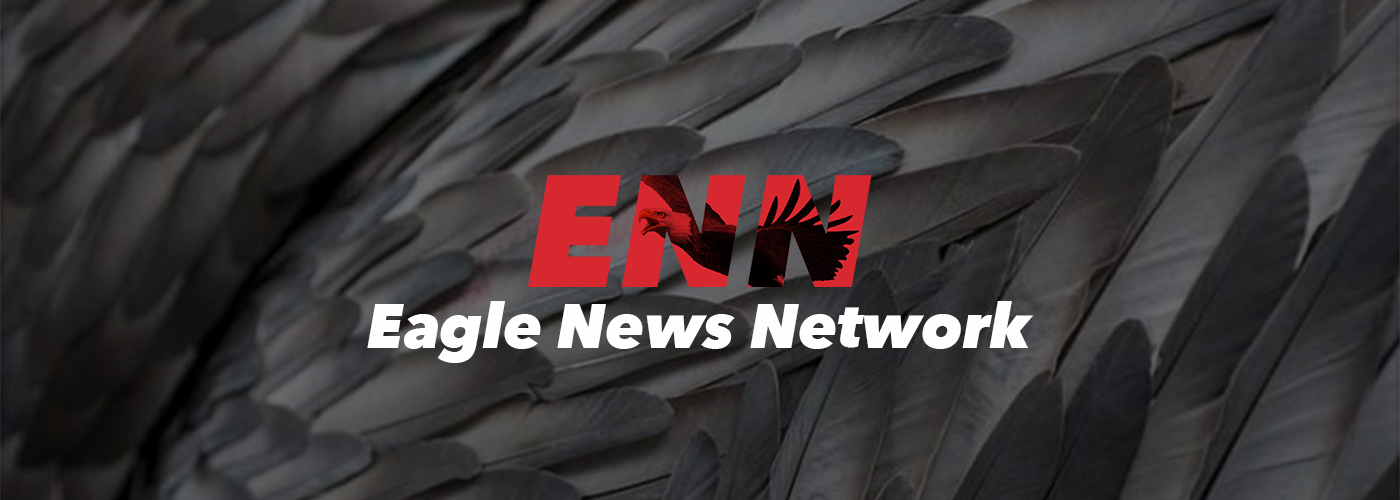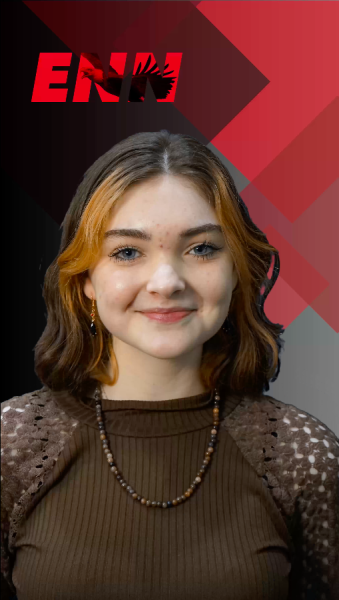There are so many things that fall through the cracks at EPHS. Whether that is substance abuse, attendance struggles, suicidal ideations, body image issues, diagnosed/undiagnosed mood disorders, abusive relationships or relationship dependence, turbulent home lives, past trauma, extreme academic stress, and more, most student issues are not addressed. Preparing a first-aid kit for your mental health might just be the first step into acknowledging, and working through, your day-to-day life. “Coping skills are trial and error; some may work really well for you for a while but then your needs may change,” said Emily Pulford, a clinically trained LGSW (Licensed Graduate Social Worker), and is working towards her LICSW, is one of the social workers here at Eden Prairie High School. Currently, EPHS has 3 licensed social workers (reference page 18 for more information on social workers). Their office is tucked away in South Commons, relatively close to the South Commons Collab.
EPHS staff and faculty have taken steps since COVID-19 to speak more openly about mental health within the student body. However, there is still an intense disconnect between the two groups. Vanessa Warren, a teacher here at EPHS who iss most commonly known for her work in AP Psychology, is open and willing to help mend this disconnect by posing pressing questions. She begins to explain the changes within the high school post-covid and amid loss the student body has experienced, “Last year we experienced back-to-back traumatic loss and there was an overwhelming need for… something. I don’t exactly know what that something could have been, but staff and students were really, really struggling,” she began, “There are a lot of adults in this building who care deeply about students, but don’t always know how to reach or fully support them. There’s still a disconnect, and it brings me back to the question: what kind of resources do we have on campus to support the mental health of students? Do they know about them? How do we make sure those resources reach them?”
The hardest part about it all is that you have to want to heal to actually heal. Warren continues, “It depends so much on where they’re at. Adolescence is such a tumultuous time and it’s not always clear as to why we think or feel the way we do on any given day! Oftentimes in order to get help, we first have to be self-aware and honest with ourselves.”
It’s not weak to realize that something, someone, or even how you treat yourself is not benefitting your mental health. It takes incredible strength to act for your well-being, especially among the expectations set for students today. With academic pressures rising and the ability to stay connected with the whole world, adolescents in the 21st century are growing up in a time where mental health resources are available and more openly spoken about, but the isolation seems stronger than ever. Steve Banks, another clinically trained LICSW (Licensed Independent Clinical Social Worker) at EPHS says, “We need to do a better job in the education piece. The information is starting to get out there, but it’s the practical skills that are really lacking in education as a school and in our culture here.”
For a brief, educational tidbit, Warren explains more about adolescence than most students have been taught, “According to developmental psychologists, we all have a series of stages we must pass through as we grow and the brain fully develops. Each stage comes with its own set of challenges and achievements. Adolescence is the time for exploration in search of identity. ‘Who am I’ is the driving question that creates an incessant internal debate: ‘Should I continue down the path of who I was taught to be and what I value? Is that true to who I really am or want to be? Where do I fit in?’ These big questions can come with big emotions. If you’re confused and feel like you’re having an identity crisis, don’t worry – this is what is supposed to be happening and you’re perfectly normal.”
Did you know that there are mental health clinics and other resources that come, sometimes weekly, to the school for students to meet with? Unfortunately, right now to get most of this information, students have to go thoroughly digging. In some cases, even setting up an appointment days or weeks in advance could be the final push-away when someone is seeking help. Pulford explains more about the social workers’ role in the school, “If a student needs someone to talk to about something that’s really on their mind or mental health stuff that’s impacting their everyday lives, we’re a really great first place to go. From there we can work with you and point you in the right direction of where to find the resources you need. If we’re not the ones for you, we will know where to reference you.” The social workers get around 10-12 students a day, but the numbers are extremely subjective. They never know what the day will bring. The students they talk to could have weekly appointments, pre-scheduled appointments, or simply students who walk into their office. Yes, students can walk into the social workers’ office lobby and request help when they need it. Because sometimes, that is all one can do, and that is perfectly alright. “A lot of students don’t know that we’re available to them. We work for the students,” Banks explains.
Another thing that has pushed students away from seeking help is comparison. If they feel that their issues are not complex enough to ask for help or a listening ear, they will rarely go out of their way to set up appointments using the system in place. Olivia Erickson, another clinically trained LICSW (Licensed Independent Clinical Social Worker) at EPHS reassures, “What’s important to you is important to us. There are no unimportant problems.” Pulford continues, “If there is something that is causing you stress, it is worth looking at, as simple as that sounds. Let’s at least talk about it.” Banks elaborates on what he has noticed throughout the school, “One of the most intense things that I see students face here are breakups, whether that’s with a partner or with friends. In terms of change, even if it seems like it shouldn’t be a big deal, we just want to support you. Students should know that we want to see you when these things happen before there are any thoughts of resorting to things that will cause a longer and more painful recovery.”
Although the school faculty and district in general have been working harder to offer more resources, students won’t hear what they are not listening to. This goes for others as well, if a student talks to an adult but their needs are not properly addressed, nothing will change. No matter how many grade-level presentations explain how mental health is important, nothing will change if resources aren’t readily made available. The term ‘mental health’ is thrown around so much that, in some ways, the stories and feelings beneath it have become frivolous.
Three seniors who were enrolled in the senior internship class, Abbie Mumm, Brooke Engelbrekt, and Madison Parkin, partnered with the mental health organization Kaleidoscope. One of their tasks in this pairing was conducting a survey among students with different questions about their individual mental health struggles and how their needs have been met. Approximately 160 high school students responded. “One of our key findings showed that 63% said they don’t know enough about suicidal ideation and sexual assault. 58% said that they want to learn more about different coping skills,” Parkin said, “And 68% said they thought there should be more education on mental health.” Because of their work, the organization has planned a week-long online seminar with different and informative mental health topics daily (you can find more information on kaleidoscopementalhealth.com). Mumm expressed, “We need to be more open to talk about mental health. We should have been before the losses these past years. Even after them, it was talked about for like, 30 seconds, and then everyone moved on. I mean, we had a moment of silence and stickers in lunch rooms, but that really felt like that was it.”
On the topic of student and district communication, Warren explains, “We need to make mental health resources/materials more accessible and to collect them into a streamlined source that students can access with anonymity. I also have this growing hope that the students themselves will participate in getting the word out and perhaps feel comfortable enough to pass along their own experiences with different coping skills to others.” If students are to feel comfortable and open enough to talk to others about the most vulnerable parts of themselves, something right is happening. Until this happens further, nothing will change.
So even though the topic of mental health is being addressed more, it is nowhere near where it should be. This isn’t solely on the school; many students shame other students for their mental health as jokes, which could be referenced back to how their family, or adults they look up to, view the topic of mental health. In past generations, there were even stricter stereotypes about mental health and the individuals who struggled with it. Everyone has a mind, thus everyone is taking care of their pre-existing mental health. Whether you are an athlete or you have never stepped foot into a club, everyone is struggling in their own ways. “Developmentally, it is all relative. It might seem small, but pain is pain. It’s worth to talk about. And even if they’re unsure, it’s worth to ask questions,” Banks said. Based on what students are most heavily involved in, the culture of mental health changes drastically, making it even more necessary for proper and accessible help during the time that most teenagers are together; school. However, ‘school’ does not mean everything should be on the shoulders of teachers, “In order to get re-licensed, teachers have to go through courses that are mental health specific. We also have other professional development opportunities to learn more, but is that enough to qualify us to deal with any things that come our way?” Warren begins, “No. But it is something we acknowledge as part of our job – getting to know our students well enough to be able to observe whether they are struggling. Yes. It’s not technically in our job description, but most definitely – yes.” In reality, it’s not just students that need more help and resources. The problem, however, relies more on what is out of both of their controls.
All in all, there is only so much an individual can do that is fully in their control. That could be researching more about what they’re feeling, reaching out to people around them for help and advice, or beginning to better themselves by developing healthy coping mechanisms. Throughout these pages, there are some easier (DIY, if you will) coping skills that you can try. Mental health does not change overnight, helpful coping mechanisms change from person to person, and the only way you can truly help yourself is by deciding that you want to heal.
Just because someone is not bleeding out in front of you does not mean they are not in pain. Take action for yourself and others around you to disarm the stereotypes blocking conversation. Warren concludes, “Staying isolated and silent isn’t the answer. More people are going through something similar than you might realize. You’re not alone. And please know that there are adults here who truly care for you, will show up for you, fight for you, and cheer for you, even if others in your life don’t.”
Take the risk and be vulnerable.



